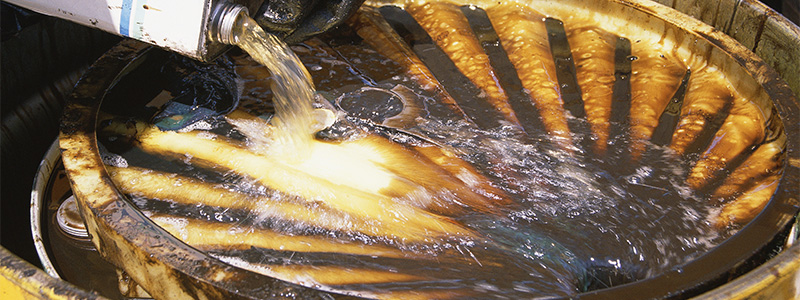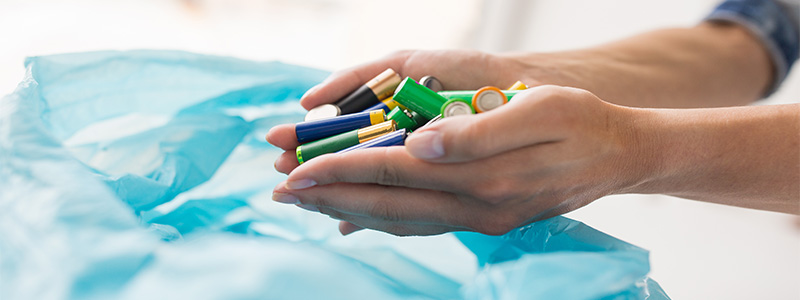
How To Dispose Of Hazardous Waste
12th Oct, 2017
We all throw lots of things away on a daily basis, and out of it all, hazardous waste is by far the trickiest to deal with – not least because a surprising number of materials fit into this category! Everything classed as hazardous waste are items you can’t put in a skip, so it’s important to know from the off how to deal with them.
There are two main ways to dispose of hazardous waste
- Deliver it yourself to a recycling centre.
- Have it picked up by a specialist agency.
We’ll go into more detail surrounding these two options in just a moment, but first, we think it’s worth reiterating why it’s crucial to deal with hazardous waste so promptly.
Why Is It Important To Dispose Of Hazardous Waste?

Well, there’s a big clue in the name already, right off the bat. By definition, it poses a serious risk to human, animal and environmental health, so nobody is too keen on having it hanging around their lungs, or soaking into their drinking water. One of the few good things about it is that it’s generally pretty easy to spot. Hazardous waste includes asbestos, chemicals (like brake fluid or print toner), batteries, solvents, oils, pesticides, and appliances that contain ozone-depleting materials. Your fridge is a good example.
On the whole, businesses often tend to produce more hazardous waste than households, as they’re normally doing everything on a slightly larger scale. That doesn’t mean households are exempt though, and in both cases, everyone should always keep a careful eye on what they produce.
Unfortunately, at Skip Hire Network, we can’t take hazardous waste in our skips because it puts our staff at risk. Don’t despair, though – here are the alternative ways you can dispose of your hazardous waste.
How You Can Get Rid Of Hazardous Waste

The first method is to find a local drop-off or recycling facility – this is the most common course of action for most people. Most recycling centres accept small batteries, car batteries, household chemicals, waste electricals, and household appliances (including your trusty fridge). Some of them take asbestos, but understandably others can be a bit uneasy about this, so it’s always best to check the capabilities of the facility in question before you set off on the journey. As a side note, some supermarkets have deposit bins for small batteries, too, so you can drop them off on your weekly shop and they’ll make the trip for you.
Your other option is to find a local hazardous waste disposal service, who will arrive at your door and take the waste for you. You local council might provide this service on certain days of the week, if you time it right. Sometimes though you’ll need to find a specialist private service, many of which charge for their services. If you’re a bit strapped for cash, taking it somewhere yourself might be the best course of action!
We’ve resolved to give you as much help as possible when it comes to hazardous waste – we’ve compiled a handy resource for you on what exactly you can’t put in a skip. Good news though – we take pretty much everything else! It’s easy to get started on hiring a skip, too – all you have to do is enter your postcode and phone number on our homepage, and within moments you’ll be looking at an instant skip hire quote.
Don’t forget to follow us on Twitter: @SkipHireNetwork